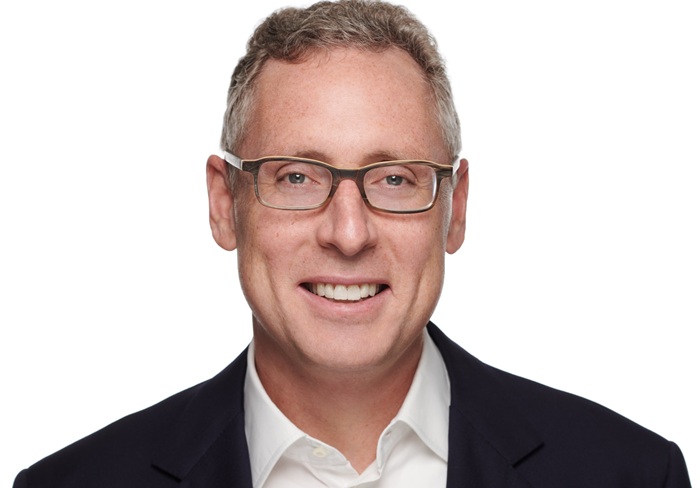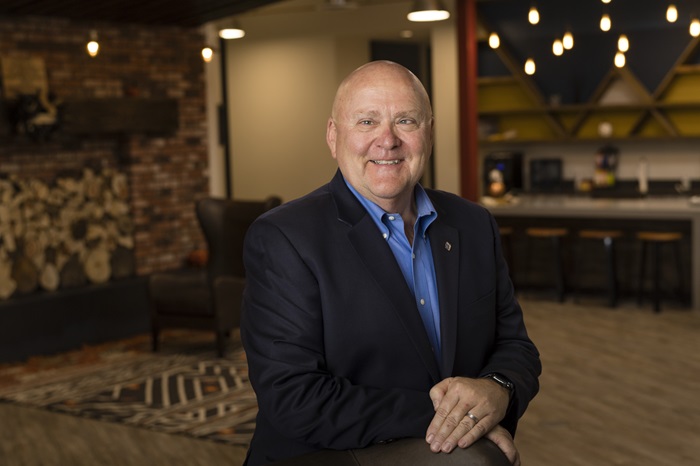In Pursuit of Excellence in Business
By Chris Benguhe, RaeAnne Marsh and Elaine Pofeldt | August 8, 2024 11:39 am
There are a million different definitions of and suggested paths to greatness in the business world, but we prefer the one that starts with people.

The idea of excellence is far more complex than simply achieving financial success. (istock photo/ Olena Zagoruyko)
There are few phrases or ideas more provocative and yet more nebulous at the same time than that of business excellence. There are, literally, hundreds of different definitions and models for achieving it out there in the business ether. (Not exaggerating; look it up.) Some of the verbiage bandied about includes fancy phrases like “business development best practices,” “innovation” and “superior organizational practices,” to name just a few.
But just about the only common denominator in all those diverse descriptions is that most agree the idea of excellence is far more complex than simply achieving financial success. They agree that, ultimately, it is about something beyond bolstering the bottom line.
Aha! Sounds like a job for our favorite superhero here at the Center — Social Capital — or the powerful potential of people-centric business strategies.
The organizations that realize the pursuit and achievement of excellence only occurs by focusing on taking care of the people they serve, employ and help in the greater community and are constantly striving to increase their efforts and value to those groups are the ones that seem to consistently achieve this — and without all the complicated language.
But there are a lot of amazing and informative words that our Social Capital leaders did have to share. So, we put together a few of our favorites here this month. These exclusive insights from some of the most successful Social Capital leaders explain how they either specifically look at or how they generally deliver excellence within that space of serving those aforementioned groups.
We think you will agree wholeheartedly this is a much more organic, easily digested and just downright more interesting take on excellence in business than much of the abstruse and convoluted perspectives out there.
Kevin Classen, CEO of FirstBank
FirstBank has operated with one simple mission for over 60 years: Do what’s right for our customers, communities and employees — or what we refer to as “banking for good.” That’s guided all of our company’s decisions, from partnerships to large operational changes to individual transactions.
As a result, we’re recognized as a top corporate philanthropist, a top workplace and a top bank for customer satisfaction throughout our trade areas. We know intrinsically happy customers, healthy communities and engaged employees have a direct impact on our company’s financial performance. We’ve not only maintained over a decade of strong financial growth but are also named one of “The 10 Top Performing Banks with $10–$50 Billion in Assets” by American Banker.
We’ve found that when you operate in your stakeholders’ best interest, opportunities and profits will follow.
Those best interests and excellence go hand in hand.

“We know intrinsically happy customers, healthy communities and engaged employees have a direct impact on our company’s financial performance.” – Kevin Classen, CEO of FirstBank (istock photo/ Olivier Le Moal)
We define excellence mainly through the lens of our strategic goals, which change over time as our priorities evolve and the market dynamic shifts. However, one strategic goal that continues to remain high on our list and is central to our definition of excellence: “Bring ‘banking for good’ to life.” We evaluate performance on this through several avenues across customer satisfaction, community impact and employee engagement:
For instance, we conduct our own employee engagement and customer experience (CX) surveys. We also participate in several national studies that measure employee and customer satisfaction, including Top Workplaces and J.D. Power’s Customer Satisfaction Study, to name a few.
We’re fortunate to not only have been recognized as a “Top Workplace” for 12 years running, but also maintain a 9.4 (out of 10) CX score, rank No. 1 in the Southwest region for customer satisfaction by J.D. Power and are named a Forbes’ “Best In State Bank.”
On the community front, we measure multiple things, including how much we raise through our 24-hour online giving campaigns (e.g., Colorado Gives Day). Last year alone, we helped raise more than $55 million for thousands of local charities. In total, we’ve raised over $450 million since we helped launch Colorado Gives Day, Arizona Gives Day and Coachella Valley Giving Day.
We also put together an annual community impact report, which helps us compare charitable contributions and volunteerism year over year, and we participate in several corporate philanthropy lists. Thanks to our partnerships, financial contributions, volunteer time off (VTO) program and officer nonprofit board involvement, we’re proud to be recognized among the most active and philanthropic companies in Arizona and Colorado.
Ed Bastian, CEO at Delta Air Lines
[Editor’s note: As we were putting this article together, the incredibly people-centric team at Delta Air Lines exclusively sent to us this heartfelt personal note from CEO Ed Bastian that he had sent out to his employees after the horrible CrowdStrike debacle last month. The courageous and impassioned letter struck us as a powerful sign of solidarity, empowerment and personal dedication to his employees at a crucial time, which we felt was the perfect example of people-centric excellence in business.]
When you get knocked down, what’s most important is how you get back up. I was reminded of that wisdom many times throughout the CrowdStrike outage, particularly in the hundreds of messages I received directly from our customers praising your efforts to take care of them during the outage.
Since restoring normal operations more than a week ago, our people have delivered the level of on-time performance and completion factor that customers expect from Delta, demonstrating our resilience even in the most trying situations.
We remain focused on taking care of our customers whose travel plans were disrupted, with refunds, reimbursements, miles and travel vouchers among other things.
Nonetheless, this has been a humbling moment for our company. I know it’s been extremely difficult, and I’m deeply sorry for what you have endured. An operational disruption of this length and magnitude is simply unacceptable – you and our customers deserve better.
Your efforts throughout have been nothing short of heroic. That’s why I’m extending my personal thanks to you with two positive space passes to any destination we serve worldwide for eligible Delta employees. More details will be available in coming weeks on Deltanet.
I want to thank all of you for your amazing work over the past two weeks responding to the CrowdStrike outage and its aftermath. I could not be more proud of how our frontline teams managed the crisis and recovery, always focusing on safety and care for our customers in the face of enormous adversity.

Ed Bastian’s courageous and impassioned letter struck us as a powerful sign of solidarity, empowerment and personal dedication to his employees at a crucial time. (istock photo/ peterschreiber.media)
Anders Jones, CEO & Co-Founder at Facet
One of the founding principles of Facet is that there is an enormous and underserved market of more than 40 million American households that both need and want financial advice but are completely ignored by the financial services industry as it exists today.
The result is that, at our core, we are a mission-oriented company: Everyone at Facet is here because we feel a personal connection to our customers, and one of our favorite things is hearing how our service has positively impacted their lives. We even have a dedicated channel called #dreamsmadepossible where we share stories of our members’ successes daily. (Fun fact: The most common goal among our members is to have a child — a metric you won’t find tracked by other major financial services companies!)
More than anything, the specific impact that we have on people’s lives reinforces the need for us to provide an excellent service. Because our members are not millionaires, and in fact are making trade-off decisions on a monthly basis, there is no room for error — and, as a result, we have to be excellent. So, really, Facet’s excellence comes from a bottom-up feeling that all of us have in pursuit of the mission.
Excellence is always a moving target at a fast-growing company that is trying to redefine an industry, so the goal posts are always shifting. With that being said, we have three core constituencies that we always try to balance: our customers, our team and our shareholders. Excellence for each one is defined slightly differently but, ultimately, we want to be delivering a service that creates value for our members, grows profitably and is delivered by a team of happy employees. We track each of those closely with many sub-metrics. There is always a balancing act to get them right but, ultimately, if we keep those three things as our collective North Star, then we’ll build an amazing company.
Jason Lippert, President & CEO at Lippert Components
Ultimately, we have a line around here in our company that we believe business can be a force for good in the world. I think most people breeze over that statement we make about business being a force for good — or that business can be a force for good — because most people don’t know what that means.
The charge at our company is for all individuals to have a personal and professional growth plan. We feel if people are growing personally and professionally, and developing, they become better people. And if they become better people at work, then the workplace is better. And they don’t just forget about that when they walk out the door and go home — it spills over into their home life with their spouse and their children or whoever they interact with outside of the work four walls, and the world does get to be a better place when you’re creating better human beings at work. And who better to develop better human beings than the workplace? Because you’ve got them for 40 or 50 hours per week. So, we really have their attention; we have them contained for a good period of their waking life, and we can actually develop and grow people with that kind of time with them.
So, we say business can be a force for good through helping people grow personally and professionally. It helps them at work, it helps them in their family lives, it spills over into families.

“Everyone at Facet is here because we feel a personal connection to our customers, and one of our favorite things is hearing how our service has positively impacted their lives.” – Anders Jones, CEO & Co-Founder at Facet (istock photo/ Viktor Aheiev)
The second way is, there are a lot of businesses that have taken note of what we’ve done in a lot of different areas of culture, so we’re trying to help a lot of businesses take their next step. A lot of businesses have reached out — manufacturing leaders in the business have taken note of what we’ve done and they’ve reached out and said, “How can we take our next step?” So, we’ve developed a leadership academy that’s external-facing and just helping businesses take those next steps in leadership development and culture development so they can impact their people positively.
We help our people and then we help other businesses help their people, and that’s what we mean when we say business can be a force for good.
Our primary product is our focus on people and developing and building up great human beings because they can run a great business. But when you look at what we actually build, it’s a lot of different types of components for the RV and marine business, transportation and specialty vehicle business, any kind of component you can think of that goes into those — we build windows and electronics and chassis and suspension systems and awnings and leveling and stabilization and all sorts of furniture and all sorts of things.
Along with tremendous growth in sales, what we’ve seen is growth in efficiency and growth in improvement and quality and growth in innovation because we just get great people staying longer and our momentum increases; so then your momentum increases, you get all these great benefits when it comes to efficiency and quality and safety and innovation. Which are really the pillars of the business. What makes business great or not is how good you are in those categories.
I ran the business for 15 years before that became apparent to me. Because we get taught in school: Focus on the shareholder, shareholder value, focus on profitability; that’s all that matters. I never had a culture class in college. I never had a leadership development class in college. But those are the things that matter the most. It’s how you lead teams, whether it’s a small team or a big team; how you show up every day and how you lead. Culture’s everything.
I came to a point in my career where I was praying very regularly about, “God, there’s gotta be more than 20% growth every year and running hard and fast and making money.” And the answer came — somehow Bob Chapman’s Truly Human TED Talk ended up in my inbox, and I watched it, and it really flipped a light bulb for me, and from that point in time, it was so compelling.
It takes the people at the top to really stick with it over the long term. You can’t waffle. … You’re those culture and leadership some days and it’s been pretty incredible, the transformation it’s done in the last 10 years.

“Our primary product is our focus on people and developing and building up great human beings because they can run a great business.” – Jason Lippert, President & CEO at Lippert Components (istock photo/ yuriz)




